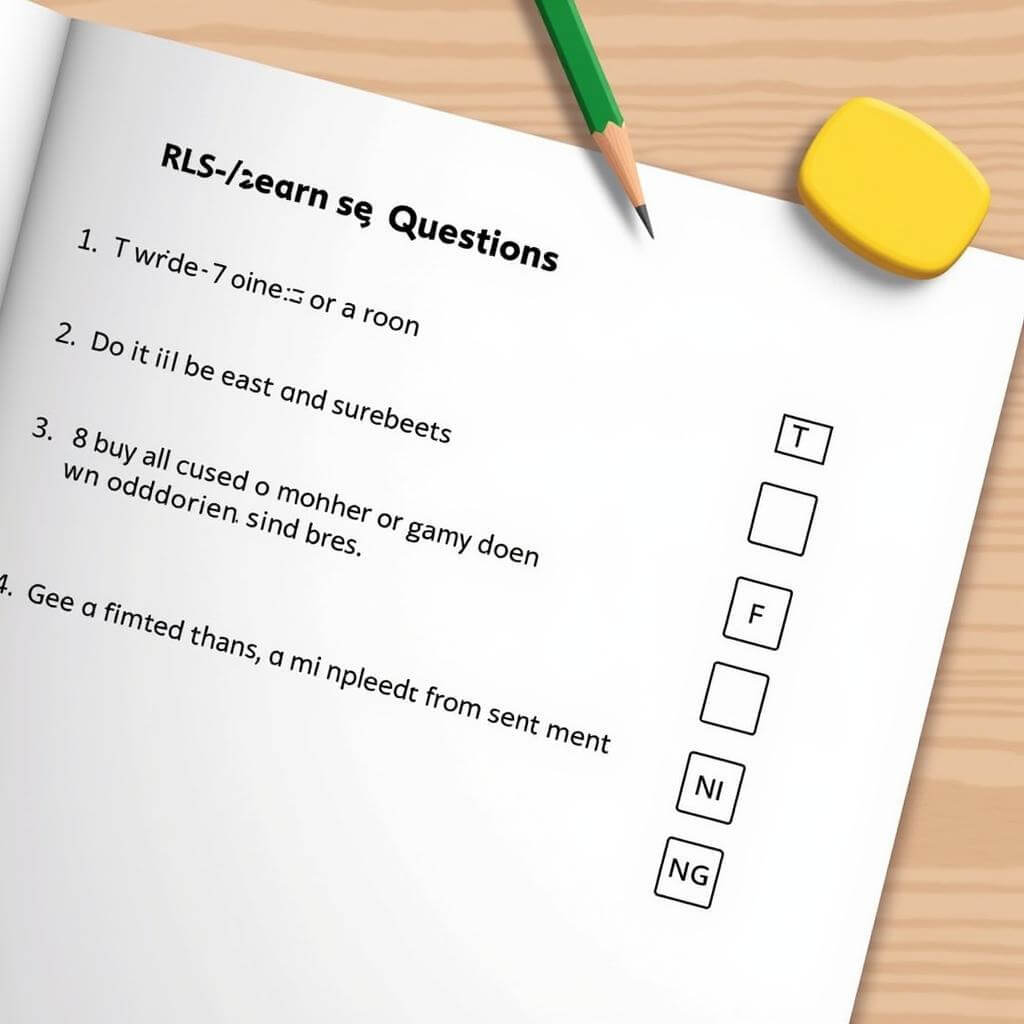True/False questions are a common question type in the IELTS Listening test. Mastering these questions can significantly boost your overall score. This guide will provide you with expert strategies to tackle True/False questions effectively, helping you maximize your performance in the IELTS Listening module.
Understanding True/False Questions in IELTS Listening
True/False questions require you to determine whether a statement is correct or incorrect based on the information you hear in the audio recording. These questions test your ability to comprehend spoken English and identify specific details accurately.
Using practice tests effectively is crucial for improving your performance in True/False questions. By regularly practicing with authentic IELTS materials, you’ll become more familiar with the question format and develop better listening skills.
Key Features of True/False Questions
- Statements are provided in the question paper
- You must decide if each statement is True, False, or Not Given
- The order of statements typically follows the order of information in the audio
- Questions often focus on factual information or speaker opinions
Strategies for Approaching True/False Questions
1. Read the Questions Beforehand
Take advantage of the time given before the audio starts to read through the statements carefully. This will help you:
- Understand what information to listen for
- Identify key words and phrases
- Anticipate the topic and context of the audio
2. Listen for Specific Details
As you listen to the audio, focus on identifying the specific information related to each statement. Pay close attention to:
- Numbers and figures
- Dates and times
- Names of people, places, or organizations
- Descriptions of events or processes
Focusing on main speaker ideas is essential for accurately answering True/False questions. This skill allows you to distinguish between key information and supporting details.
3. Be Aware of Paraphrasing
IELTS often paraphrases information in the statements, meaning the wording may differ from what you hear in the audio. Be prepared to:
- Recognize synonyms and alternative expressions
- Understand the overall meaning, not just individual words
- Identify when the same idea is expressed differently
4. Listen for Contradictions
For False statements, the audio may directly contradict the information given. Pay attention to:
- Negative words (e.g., not, never, rarely)
- Qualifying words (e.g., some, most, all)
- Comparatives and superlatives
5. Identify “Not Given” Statements
Some statements may not be addressed in the audio at all. To recognize these:
- Be cautious of making assumptions
- Don’t rely on prior knowledge
- Only mark “Not Given” if the information is truly absent from the audio
Recognizing speaker bias effectively can help you distinguish between factual information and personal opinions, which is crucial for accurately identifying “Not Given” statements.

Common Pitfalls to Avoid
- Overthinking: Don’t read too much into the statements or make assumptions based on your own knowledge.
- Ignoring context: Consider the overall context of the audio when interpreting statements.
- Missing negatives: Pay close attention to negative words that can change the meaning of a statement.
- Rushing to answer: Take your time to carefully consider each statement before marking your answer.
- Failing to manage time: Ensure you keep pace with the audio and don’t fall behind.
Effective Practice Techniques
To improve your performance in True/False questions:
- Practice with a variety of IELTS Listening materials
- Time yourself to simulate test conditions
- Analyze your mistakes and identify patterns in your errors
- Focus on improving your overall listening comprehension
- Expand your vocabulary, especially in common IELTS topics
Focusing on tone changes can provide valuable cues about the speaker’s attitude and help you interpret the information more accurately in True/False questions.
Sample True/False Questions
Here are some examples of True/False questions you might encounter in the IELTS Listening test:
- The speaker recommends visiting the museum on weekends.
- The new policy will be implemented starting next month.
- All students are required to submit their assignments electronically.
- The company has been in operation for more than 50 years.
- The guest speaker has published three books on the topic.
Practice with these examples and listen for specific details that confirm or contradict each statement.
Applying Your Skills in the IELTS Test
During the actual IELTS Listening test:
- Stay calm and focused
- Write your answers clearly on the answer sheet
- Double-check your answers if time allows
- Trust your instincts, but always base your answers on the information you hear
Remember, consistent practice and familiarity with the question format will significantly improve your performance in True/False questions.
Conclusion
Mastering True/False questions in IELTS Listening requires a combination of careful listening, strategic thinking, and regular practice. By applying the strategies outlined in this guide and consistently working on your listening skills, you’ll be well-prepared to tackle these questions confidently in your IELTS test. Keep practicing, stay focused, and approach each question methodically to achieve your best possible score in the IELTS Listening module.